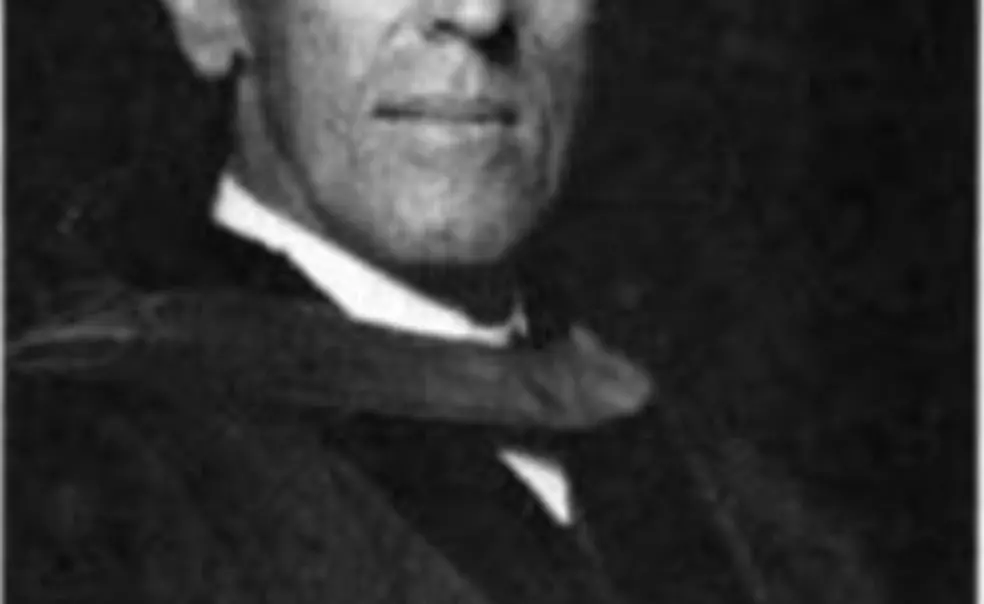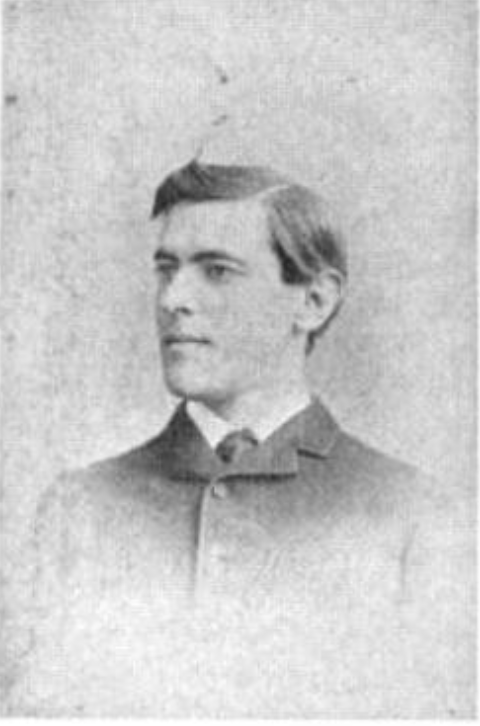Woodrow Wilson ’79 Letters: Some Surprising Themes
Politics was his true vocation, not scholarship and academic administration, and the invitation to run for Governor of New Jersey came as a welcome release from a profession which could not use his particular talents and for which he was temperamentally unfitted.
A mere student can make himself understood only by students. He thinks the thoughts and speaks the dialect of a class, a caste; he can touch neither the sympathy nor the interest of the community at large, which is made up of unstudious people of plain, workday opinions and simple, practical, unlogical, hand to mouth judgments. If one sees men only through and in books, he sees only the simulacra, walking qualities, labelled emotions, catalogued feelings. If he lives all his life in a room, if he feels more at home in a library than in conversation with his carpenter, he is unfit to have anything to say to his fellow men. The whole effort of the University life is to make men interested in books and in the remote interests which books discuss. And it is this spirit against which I struggle. I want to be near the world; I want to know the world; to retain all my sympathy with it – even with its crudenesses. I am afraid of being made a mere student. – Woodrow Wilson
A memorable recent exhibit in the Library was the cream of some 1460 letters between Woodrow Wilson and his first wife, Ellen Axson, presented to the University by their daughter, Mrs. Eleanor Wilson McAdoo. Now 316 pages of them have been published by McGraw-Hill under the title, The Priceless Gift: The Love Letters of Woodrow Wilson and Ellen Axson Wilson ($6.95), with Mrs. McAdoo as editor. While most of the attitudes expressed are as remote from us as Camelot, the general reader interested in Wilson and Princeton will come upon some intriguing themes, some of them rather surprising.Foremost, of course, is the light the letters cast upon that baffling phenomenon, the personality of Woodrow Wilson. The title “love letters” is not exact, since 28 of the 30 years they span were of the marriage (and a singularly happy one). Rather, he writes from London of (after 14 years of marriage) “the almost feminine sensibility I have with regard to the feeling others may have for me – an insatiable desire to be loved,” or again, he thanks his inseparable friend (at the time) Professor Hibben for a letter giving him “assurance of being thought of and missed and loved…” He was evidently under some sort of compulsion to spend this incredible amount of time – the letters average six or eight pages, some much longer, all written by hand or on his portable Hammond typewriter, even in the White House – writing these monologues about himself and self-analyses to uncritical, admiring women. For instance, in Bermuda in 1906 he met an attractive, unintellectual society woman named Mrs. Mary Hulbert Peck, and after a short-lived, tepid flirtation proceeded to write her 252 of this same sort of letters about himself for the rest of his life, although he saw her again only a few times.* The recipients of these letters, it would seem, were not so much correspondents as adulatory audiences before whom he enjoyed thinking aloud, justifying himself to their applause.
Dislike of Universities
Another surprising leitmotiv is his avowed contempt for the central purpose of universities, or at least of Johns Hopkins: scholarship and research. He had refused to study for the Ph.D., and his doctorate was in name only. ** The intellectual life he finds “fearfully solitary,” his studies “very tiresome,” research “tedious toil,” and the atmosphere at Johns Hopkins made him “uncomfortable” because it was devoted to the wrong end: to turn out “university professors,” a species from which he was careful to disassociate himself. The “university professor,” he writes, “had his chief interest in the accurate details of history…in past society for its own sake”; his own chief interest was in “history as it furnishes object lessons for the present.” As for himself he wanted to write books not for other professors but for “the great host who don’t wear spectacles…I don’t care how much contempt may look upon my pages through professors’ glasses!”
“The profession I chose was politics; the profession I entered was the law. I entered the one because I thought it would lead to the other.” To become a statesman was his real ambition, but unhappily his brief legal career was a failure. He laments his lack of a private income (or hope of inheriting one) because “the chances of defeat [in politics] are chances of poverty, of financial ruin.” Since he was “shut out” from his true calling, he unwillingly chooses “the only feasible place for me,” a professorship; although he feels a veiled disdain for the academic life, as has been indicated, it provides “leisure…the only strictly literary berth with an income attached.” Unable to enter politics himself, he will inspire young men to go into public life; “since I am shut out from realizing my first ambition, to become a public servant and actively participate in the direction of affairs, it is my heart’s dearest desire that I may become one of the guides of public policy by becoming one of the guides of public thought.”
Finally, the reader is struck by the hopelessness of his final years at Princeton. After such a brave beginning he had “split the college” (as Hibben told him he would) by his proposal to abolish the eating clubs and construct a “Quad” system, which incidentally abrogated a solemn covenant to make the Princeton Graduate School the next order of University fundraising. His interest was in the undergraduates, and graduate study, scholarship, research – the distinguishing marks of a university as opposed to a college – constituted the atmosphere that had made him so “uncomfortable” at Johns Hopkins and marked the career he was resolved not to follow. As Dean West complained, Wilson had never lifted a finger to raise money for the Graduate School – in fact, had stolen some of West’s best prospects – and the struggle which followed was over a question in which Wilson had no real interest. As for himself, in a White House interview he told Ida Tarbell he hadn’t read a serious book all the way through since 1902. As in his legal career, he had again chosen the wrong profession.
He starts to talk of the “impossibility of continuing at things I do not believe in,” and forces these power struggles dividing trustees and the faculty, using absurd non-academic slogans like “entrenched wealth” and “social privileges” – over the location of some dormitories for graduate students! His nerves “have been very deeply affected by the abuse,” and a Bermuda vacation is necessary – “I am so widely hated and attacked.” Even there “the nights distressed me. The trouble latent in my mind came out in my dreams…the distress – the struggle all night with college foes, the sessions of hostile trustees, the confused war of argument and insinuation.”
Although a political scientist, he had committed the suicidal sin of alienating his constituency – the alumni. It comes as a shock to read the gentle Mrs. Wilson, after 20 years as a faculty wife, writing him, “no matter how outrageous the Alumni were…we can really afford to laugh at the howling of the Alumni, ‘mongrel, puppy, whelp and hound, and curs of low degree!’”
Politics was his true vocation, not scholarship and academic administration, and the invitation to run for Governor of New Jersey came as a welcome release from a profession which could not use his particular talents and for which he was temperamentally unfitted. At Princeton, he had suffered from a host of psychosomatic ills and no less than five severe breakdowns. But in politics decisions are clear-cut, the way he liked them: one party wins and purges its opponents, in contrast to the compromises characteristic of the academic world: there is no such thing as tenure, and party discipline can be enforced (as opposed to the anarchy of faculty meetings). *** His health cleared up marvelously, and there were no more breakdowns so long as he had comfortable majorities in the New Jersey Legislature and in Congress. But in 1918, interestingly enough, the same situation which he had faced at Princeton took place: Republican majorities were elected in both houses of Congress, and he was faced once more with an entrenched opposition with whom he would have to compromise: just as at Princeton, with suicidal intransigence he refused to compromise, “went to the people” (as he had gone to the alumni over the heads of the trustees), and broke down.
Written “off the top of his head,” intended only for Mrs. Wilson’s eyes and not for publication, these intimate letters reveal, as his first biographer said, “the soul of a man with all his burning intensities, his aspirations, his doubts. Better far than any diary could have been; better than any half-remembered memoir.” Professor Link, his present biographer, calls them “incomparably the greatest single Wilson treasure in existence.” But such brutally candid documents should be used only in context, as only one angle of approach to understanding a man who goes down in history not as a letter writer of the Horace Walpole or Henry Adams variety, but as a man of action, a very great President of the United States. One of the last letters in the book happily reminds us of another side of Wilson entirely: Mrs. Wilson met Judge Learned Hand in 1913 and although a Bull Mooser he told of meeting her husband “some years ago and you impressed him then as the most powerful personality he had ever seen.”
* The Peck letters were talked about ominously in Republican circles during his political career and in the Wilson papers have been “classified” ever since. Although there is nothing “sensational” in them, their forthcoming publication in the Princeton edition will be read with interest.
** Later he decided he needed the degree for academic promotion and persuaded his professors to give him the degree without the usual examination and considering a published book as his “dissertation.”
*** As is necessary in academic affairs, in the Graduate School fight the trustees worked out a face-saving compromise which would give Wilson the substance of victory; but his absolutist temperament required the public subjection of his opponents, and he refused even this three-quarter triumph.
This was originally published in the February 8, 1963 issue of PAW.













No responses yet